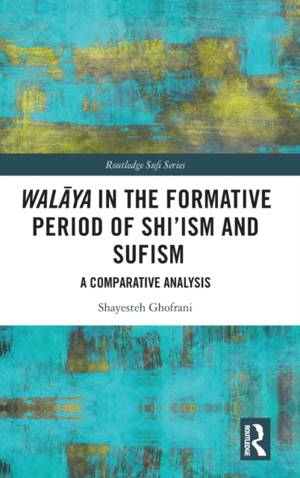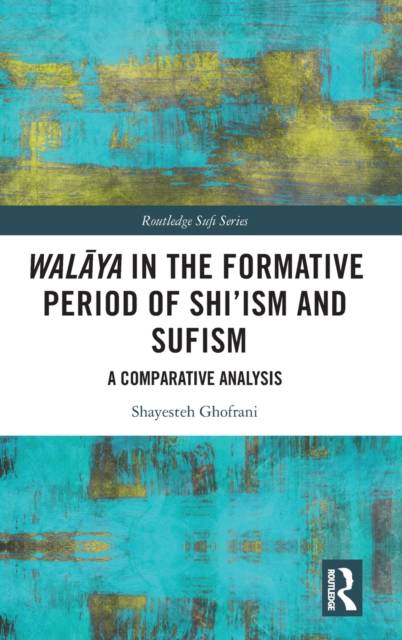
- Afhalen na 1 uur in een winkel met voorraad
- Gratis thuislevering in België vanaf € 30
- Ruim aanbod met 7 miljoen producten
- Afhalen na 1 uur in een winkel met voorraad
- Gratis thuislevering in België vanaf € 30
- Ruim aanbod met 7 miljoen producten
Omschrijving
Focused on Shi'ism and Sufism in the formative period of Islam, this book examines the development of the concept of walāya, a complex term that has, over time, acquired a wide range of relationships with other theological ideas, chiefly in relation to the notion of authority.
The book offers a textual and comparative analysis of walāya based on primary sources in the ninth and tenth centuries, from both Shi'i and Sufi circles. The starting point is one of the oldest surviving Shi'i sources, Kitāb Sulaym. Alongside this, the author analyses al-Īḍāḥ of Faḍl Shādhān al-Nishābūrī, Kitāb al-Maḥāsin of al-Barqī and Kitāb al-Kāfī of al-Kulaynī. Three major texts in Sufism are considered: Kitāb al-Ṣidq by Abū Saʿīd al-Kharrāz, Tafsīr al-Qurʾan al-ʿAẓīm by Sahl al-Tustarī, and Al-Tirmidhī's Kitāb Sīrat al-Awliyāʾ. Together, these sources highlight the doctrinal aspects of walāya, exploring the identity, function, appointment, and description of those considered 'walī'. The author ultimately argues that walāya is a cluster of rich, deep-rooted responses to the question of authority, developed within both Shi'ism and Sufism after the death of the Prophet.
The book is much-needed reading for students and scholars interested in Shi'i and Sufi studies and Islamic philosophy.
Specificaties
Betrokkenen
- Auteur(s):
- Uitgeverij:
Inhoud
- Aantal bladzijden:
- 188
- Taal:
- Engels
- Reeks:
Eigenschappen
- Productcode (EAN):
- 9781032432496
- Verschijningsdatum:
- 31/03/2023
- Uitvoering:
- Hardcover
- Formaat:
- Genaaid
- Afmetingen:
- 156 mm x 234 mm
- Gewicht:
- 462 g

Alleen bij Standaard Boekhandel
Beoordelingen
We publiceren alleen reviews die voldoen aan de voorwaarden voor reviews. Bekijk onze voorwaarden voor reviews.











